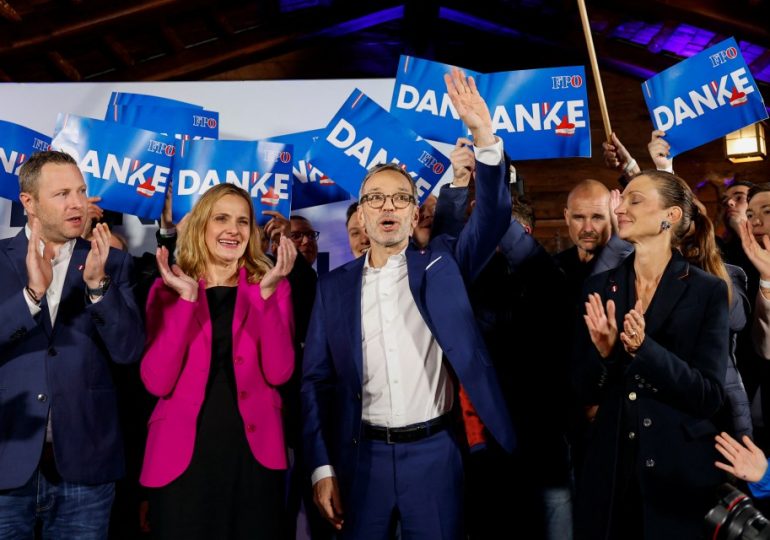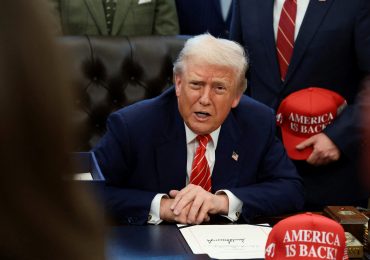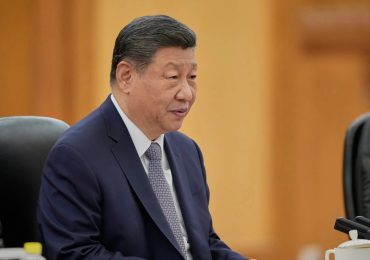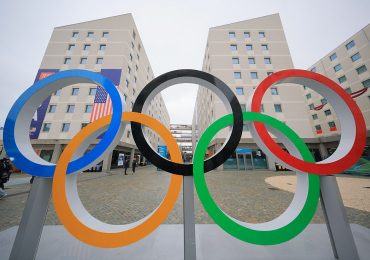ANOTHER far-right party has secured a major election victory in a blow to the EU as the surge of hard-right in Europe continues.
Austria’s Freedom Party scored a landmark win in Sunday’s elections with 29.2 per cent of the vote.
ReutersHead of Freedom Party Herbert Kickl celebrating after his win in Vienna[/caption]
GettyDemonstrators in Paris protesting about the rise of right-wing parties[/caption]
EPAProtesters took it to the streets after the results in Thuringia, Germany[/caption]
SplashAnti-Islam Geert Wilders also secured a win for hard-right PVV[/caption]
RexMarine Le Pen’s National Rally gained 31.5 per cent of the popular vote this summer[/caption]
GettySupporters of the far-right Alternative for Germany (AfD) political party[/caption]
The hard-right party, with deep Nazi roots, called for tougher immigration policies and cutting the aid to Ukraine, in their election program, branded Fortress Austria.
The FPO’s leader Herbert Kickl who campaigned using the “people’s chancellor” moniker once used to describe Hitler, said he was ready to form a government with “each and every one” of the parties in parliament.
It is the first time the FPO, founded by former Nazi SS officer Anton Reinthaller won the majority in a national election.
The breakthrough follows an alarmingly increasing number of wins of the far-right in Europe – especially in France and Germany.
The surge of the right-wing parties in Europe began last September with the win of pro-Putin Robert Fico in Slovakia.
His party Smer won 22.95 percent of the vote and 42 seats – after the Slovak leader vowed to end military support for Ukraine.
Two months later, another worrying win followed – the one of controversial politician Geert Wilders dubbed “Europe’s Most Dangerous Man.”
The far-right leader has been vocal about his anti-Islam views and has even compared the Quran to Hitler’s Mein Kampf.
Anti-EU Wilders and a staunch advocate for “Nexit” – the Netherlands leaving the EU – Wilders secured 37 seats in last year’s election.
This summer French President Emmanuel Macron was forced to call for a snap French election after suffering a heavy defeat to Marine Le Pen’s far-right party.
Marine Le Pen‘s National Rally gained 31.5 per cent of the popular vote – double that of Macron’s Renaissance coalition.
Le Pen said the French people “sent a very clear message” and added: “We are ready to take power if the French show trust in us.”
Rassemblement National won the most votes in the first round in July but was later blocked by an informal alliance.
Meanwhile, earlier this month in Germany, a far-right party won a regional election – for the first time since the rise of the Nazis.
The Alternative for Deutschland won the majority of votes in Thuringia the first win for the far-right in a regional election since WW2.
The party’s regional leader Bjorn Hocke has been found guilty of using banned Nazi slogans twice.
Hocke used a SA stormtrooper phrase in a campaign speech last December after using the same slogan in 2021.
He was fined twice totalling 30,000 Euros for the usage.
And in Belgium, the right-wing nationalist New Flemish Alliance (N-VA) retained its first spot, with an expected 22 per cent of the votes.
Its leader Bart De Wever is currently in talks to form a Belgian coalition government.
In Italy, Giorgia Meloni‘s party won more than 28 per cent of the national vote for the EU assembly, which would make it a key player in forming future alliances.
And in Hungary Prime Minister Viktor Orban’s far-right Fidesz party took 44 per cent.
The PM, who is pals with war-hungry Putin, blocked a £42million aid package for Ukraine from the EU in December 2023.
The pattern could easily continue into the following year as billionaire Andrej Babiš is looking to make a comeback in power in the Czech Republic in next year’s elections.
The businessman dubbed the “Czech Donald Trump” has repeatedly questioned the EU’s support to Ukraine.
French voters also return to the polls next year while the AfD will attempt to convert its regional successes into national gains next year.
ReutersThe banner reads: “Hoecke! You have already messed it up once”[/caption]
Paul EdwardsPosters in Germany calling for an end to illegal immigration[/caption]
EPAFormer Czech Prime Minister Andrej Babis is looking to make a comeback in politics[/caption]
GettyBjoern Hoecke’s Alternative for Germany (AfD) won the majority of votes in Thuringia[/caption]
Leave a comment







